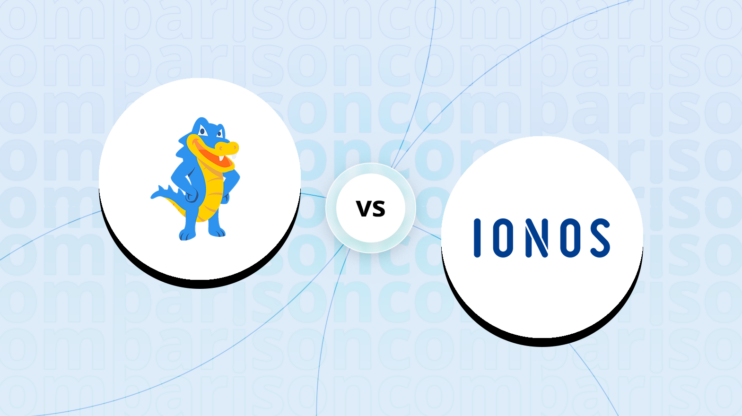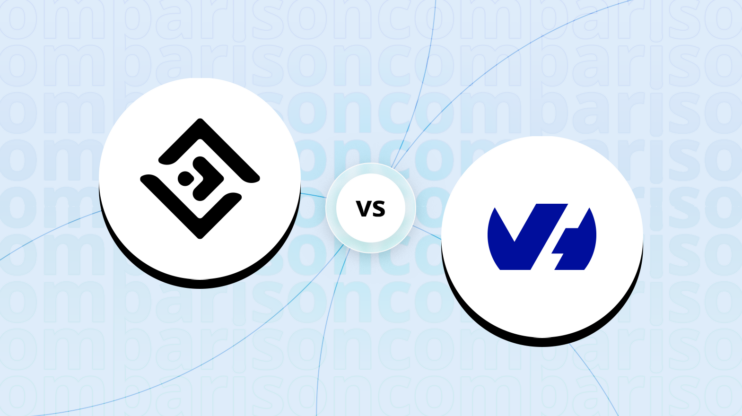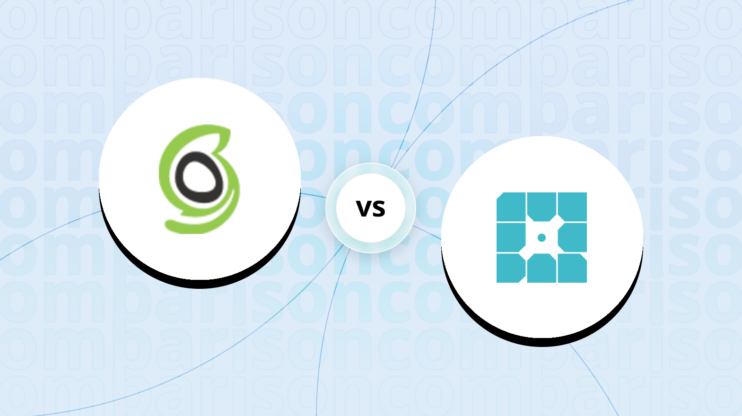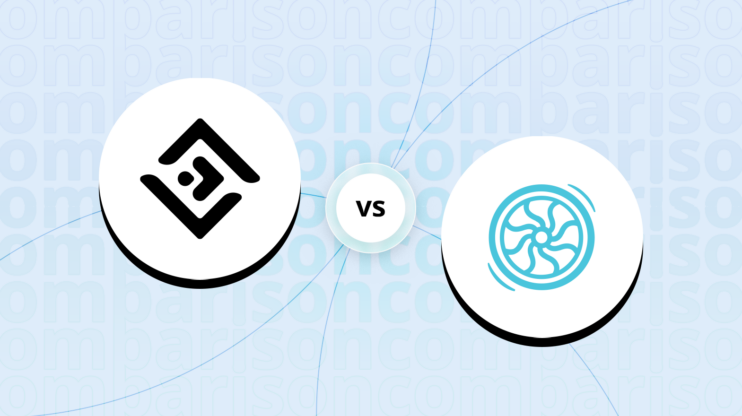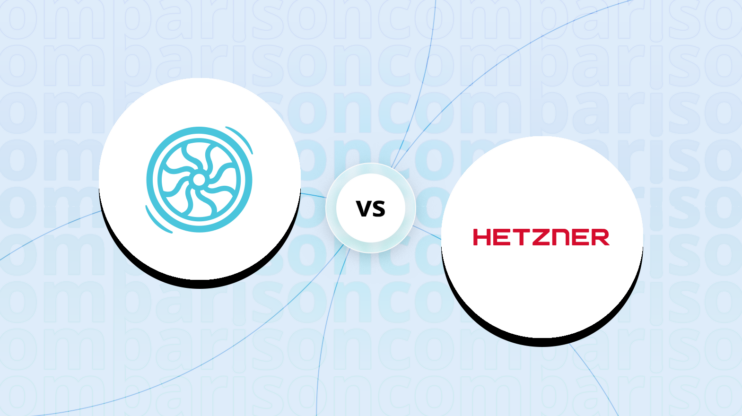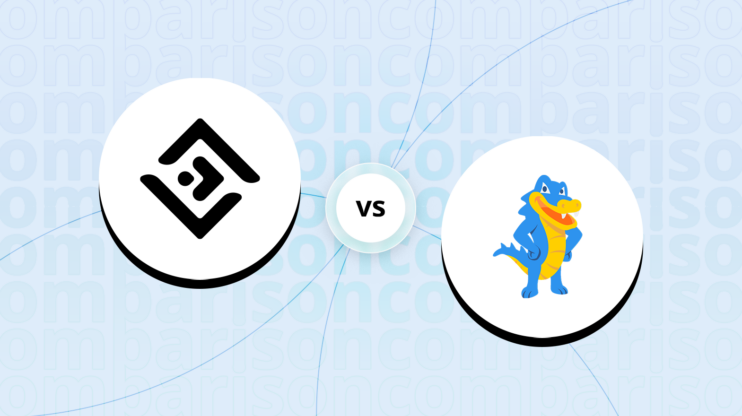Dreamhost vs OVH Cloud: Final verdict
Looking over DreamHost vs. OVHcloud, both hosting providers offer a strong suite of services, standing shoulder to shoulder in their offerings and overall performance.
-
DreamHost (Overall grade: 8.2)
is known for its comprehensive range of hosting solutions, including shared, managed WordPress, VPS, dedicated, and cloud hosting. It boasts an impressive 100% uptime guarantee, high-performance infrastructure with SSD storage, and features like free domain registration and automated WordPress setup, which appeal to a wide audience. However, DreamHost has a few drawbacks, such as the absence of phone support and sporadic slow customer service response times. Overall, it delivers reliability, ease of use, and stellar support that’s accessible 24/7 through various channels.
OVHcloud(Overall grade: 8.2)
distinguishes itself with its formidable infrastructure and a strong emphasis on security and large-scale resource allocation. Ideal for agencies and high-traffic media sites, OVHcloud provides extensive storage options and advanced features such as anti-DDoS protection and detailed user management capabilities. Despite these strengths, OVHcloud has faced issues with customer service, including slow response times and complicated billing processes. Additionally, while it offers substantial performance enhancements, some of these benefits come at an additional cost, possibly complicating its appeal for smaller enterprises.
 Overall grade:8.2 |
 Overall grade:8.2 |
|
|---|---|---|
| Uptime and Availability | 8.5 | 8.2 |
| Hosting Performance | 7.8 | 7.5 |
| Hosting Security | 7.8 | 9.3 |
| Price | 8.2 | 8.7 |
| Hosting Features | 7.9 | 6.6 |
| Ease Of Setup | 8.9 | 8.7 |
| User Management | 8.1 | 8.9 |
| Customer Support | 8.3 | 7.6 |
| User feedback | 4/5 | 3.3/5 |
Hosting types offered
Both platforms provide a variety of hosting types, each designed to meet the different needs of users.
 |
 |
|
|---|---|---|
| Shared hosting | ||
| Cloud hosting | ||
| WordPress hosting | ||
| Ecommerce hosting | ||
| VPS hosting | ||
| Dedicated hosting |
Although both offer a variety of hosting plans tailored to different needs, in
certain cases, one platform may prove to be more suitable.
Detailed comparison
Uptime and availability
Evaluates the average uptime statistics, uptime guarantee and overall availability of the hosting
provider
Score Components:
- Uptime percentage (30%): evaluates the uptime statistics in given period of time
- Uptime guarantee (20%): Assesses if the platform offers an uptime guarantee and
whether the actual uptime matches the promised guarantee. - General performance (25%): Evaluates how fast is the average response time and overall
it’s stability. - Responsiveness (10%): Adaptability to different devices and screen sizes.
- Availability (25%): Reflects the total downtime and number of outages.
 8.5
8.5
 8.2
8.2
🏆 Winner DreamHost: Reliable performance with a 100% uptime guarantee.
DreamHost stands out with its impressive 100% uptime guarantee, ensuring your website remains accessible at all times. Performance tests confirm this reliability, with consistently high uptime scores and impressive average response times. Additionally, DreamHost handles stress tests well, making it a dependable option for high-traffic sites.

OVHcloud offers strong infrastructure and high availability through its numerous data centers and PoPs worldwide. Although it has faced uptime challenges in the past, recent improvements have brought it closer to industry standards. OVHcloud’s anti-DDoS protection and automatic backups enhance service reliability and data security, making it a notable contender in the hosting arena.

Which one has better hosting performance?
Score Components:
- Hosting speed (30%): This includes SSD quality, Load times, PageSpeed score ranges,
additional information on website speed, built-in plugins for performance enhancement, available caching
methods, and CPU/RAM options - CDN (20%): Considers whether CDN is available or not, whether it’s free or paid, and
the quality of the CDN service - Available data centers (30%): Evaluates the number of data centers and their locations
globally. - Scalibility (20%): Looks at whether elastic scaling is available, the process required
to scale (manual upgrade vs. automatic scaling), the presence of dedicated servers, and the costs
associated with scaling.
 7.8
7.8
 7.5
7.5
🏆 Winner:
DreamHost: Offers high-performance cloud hosting with dedicated resources, 100% uptime guarantee, and advanced security features.
Both DreamHost and OVHcloud provide solid hosting solutions, but they cater to different audiences based on their performance features and pricing plans. DreamHost offers high-performance cloud hosting with SSD storage, server-level caching, and NGINX hosting, which ensures faster load times and enhanced performance. Coupled with a 100% uptime guarantee and multiple datacenter locations, DreamHost ensures that your site remains accessible at all times. In comparison, OVHcloud offers high-performance resources and unlimited traffic but lacks the built-in server-level caching features seen in DreamHost, which could affect speed during high traffic periods. OVHcloud does offer a CDN, although it’s a basic package.
Website Speed
When it comes to website speed, DreamHost’s infrastructure with SSD storage and server-level caching plays a significant role in enhancing load times. Their use of NGINX and OPcache further sharpens performance, providing reliability even under heavy traffic. On the other hand, OVHcloud does offer high-performing resources such as up to 8 vCores and 16 GB of RAM, but the lack of built-in caching solutions could result in slower speeds. OVHcloud relies on its CDN and additional boost options to handle traffic spikes, which might incur extra costs.
Scalability
Scalability is seamless with DreamHost, thanks to features like expandable RAM and storage without the need for immediate plan upgrades. Their various plans, including Cloud, VPS, and Dedicated Hosting, offer flexibility as your needs grow, with manageable costs starting from $0.0075/hour for cloud hosting. OVHcloud also provides scalability options with up to 8 vCores and additional boost features, but these are often at an extra cost and may require manual upgrades. Their plan is well-suited for e-commerce websites but lacks the automated scaling ease seen in DreamHost.
Which one has better security features?
and regulatory requirements
Score Components:
- Technical security measures (40%): This includes encryption, firewalls, DDoS
protection, secure configurations, server monitoring, access control and availability of security addons
(e.g Sitelock security). - Operational security measures (30%): Encompasses data privacy, backups and data
redundancy. - Compliance and certifications (20%): Adherence to legal and regulatory requirements
(e.g., GDPR, HIPAA) and possession of certifications (e.g., ISO 27001, SOC 2). - Business and reliability (10%): Factors in the provider’s reputation, uptime
guarantees, and customer support.
 7.8
7.8
 9.3
9.3
🏆 Winner OVHcloud: Provides extensive compliance and advanced security features.
Both DreamHost and OVHcloud, have notable differences in their approaches to technical and operational
security, as well as in their compliance with regulations.
Technical security measures:
DreamHost and OVHcloud offer robust technical security measures to protect websites. DreamHost includes features such as free SSL certificates, MFA, DreamShield malware scanning, DDoS protection, and RAID 1 storage. OVHcloud also provides free SSL certificates with options to upgrade to higher levels of verification, anti-DDoS protection, and automatic data backup and restore services. However, OVHcloud features a built-in firewall on all plans and more extensive API options for advanced security tasks. Both providers support dynamic sites using PHP, but DreamHost explicitly mentions support for PHP 8 and OPcache for enhancing performance.
Operational security measures:
Operationally, both DreamHost and OVHcloud provide 24/7 monitoring and support, but the scope and detail vary. DreamHost offers expert support and a custom control panel for ease of management. In comparison, OVHcloud includes detailed traffic statistics, a task scheduler, and multi-site management capabilities. OVHcloud ensures data sovereignty within its own datacenters and commits to keeping customer data within the EU. Both providers offer secure remote access via SSH, but DreamHost provides additional features like password protection for directories and local MySQL servers with root access for faster database queries.
Compliance and certifications:
DreamHost follows GDPR compliance and applies these regulations globally, but it does not support HIPAA. Although DreamHost is PCI compliant for its own sites, it requires customers to obtain PCI certification for their websites. OVHcloud supports GDPR compliance and has a wide range of certifications including PCI DSS, ISO standards, SOC reports, CSA STAR, HIPAA, and compliance with various local and international guidelines, making it more suitable for businesses with diverse and stringent compliance needs.
 |
 |
|
|---|---|---|
SSL certificate |
Free, professionally-signed, third-party |
Free, Sectigo DV/EV SSL |
Additional security features |
MFA, DreamShield, DDoS, mod_security |
Anti-DDoS, firewall, backup and restore |
PHP versions |
PHP 8, OPcache |
Not specified |
GDPR compliance |
Yes |
Yes |
HIPAA compliance |
No |
Yes (US datacenters) |
PCI compliance |
Own sites, not for customers |
Yes |
Hosting features
Score Components:
- Domains (20%): Assesses the availability of a free domain, domain purchase options, and
pricing - Email (15%): Considers if the provider offers full email hosting, or is reselling
third-party service, and if the email is only transactional or not - Website builder (15%): Checks if website builder is available, and it’s user
friendliness and overall the level of customization allowed. - Staging environment (20%): Determines if a staging environment is available, allowing
for testing changes before going live. - FTP & SFTP accounts (10%): Evaluates if and how easily users can access FTP and
SFTP accounts - Git and SSH access (20%): Assess whether Git is integrated into the hosting service and
if SSH access is provided
 7.9
7.9
 6.6
6.6
🏆 Winner
DreamHost: A versatile and feature-rich hosting provider that caters to a variety of needs.
DreamHost and OVHcloud both offer comprehensive hosting services that appeal to different user requirements. DreamHost shines with its extensive plan options, including shared, managed WordPress, VPS, dedicated, and cloud hosting, each equipped with desirable features like free domain registration, SSL certificates, and robust security measures. DreamHost’s 100% uptime guarantee and automated WordPress setup with backups add extra appeal for users seeking reliability and ease of use. A standout feature is DreamHost’s free migration for WordPress Basic and DreamPress plans, simplifying the transition process for new customers.
Conversely, OVHcloud focuses on managed hosting with a strong emphasis on infrastructure and security. Their offerings range from Starter to Performance Web Hosting plans, with unlimited monthly traffic and anti-DDoS protection included across the board. OVHcloud provides generous disk space allocations and a unique multi-site management capability, beneficial for users managing several web projects. The inclusion of a detailed statistics dashboard and task automation further enhances user experience. OVHcloud’s 1-click CMS installation is a user-friendly feature that simplifies site setup for various content management systems like WordPress and Drupal.
 |
 |
|
|---|---|---|
Free domain |
Yes |
No |
Free SSL |
Yes |
Yes |
Email hosting |
Yes |
Yes |
Website builder |
Custom Control Panel |
1-Click CMS Installation |
Staging environment |
Yes |
No |
FTP & SFTP access |
Yes |
Yes |
Git and SSH access |
Yes |
Yes for selected plans |
Free backup |
Yes |
Yes |
Money back guarantee |
Yes |
Yes |
Both providers support a range of users from beginners to experts with user-friendly website builders and WordPress staging areas. However, in terms of developer tools, both DreamHost and OVHcloud offer robust options including SSH access, support for multiple programming languages, and Git for version control, thus appealing to developers looking for advanced capabilities.
Email services:
DreamHost excels in offering professional email addresses with anti-spam protection across all plans. Users can set up their own email using DreamHost’s interface or integrate third-party services like Google Workspace. OVHcloud provides a solid email hosting service with a substantial number of email addresses available, depending on the selected plan. OVHcloud does not resell third-party services but offers native email hosting scalable to user needs.
Price
Score Components:
- Plan value (40%): What each pricing tier offers.
- Transparency and clarity (30%): Clearness of pricing structures.
- Flexibility of plans (20%): Range of options to suit different budgets.
- Hidden costs (10%): Additional expenses not included in the plan.
 8.2
8.2
 8.7
8.7
🏆 Winner
OVHcloud: OVHcloud offers a range of hosting options with extensive features at competitive prices.
Evaluating the pricing of plans among various hosting providers can be complex due to their differing pricing and renewal strategies. Additionally, certain plans require annual commitments, which adds to the difficulty of making comparisons. The prices listed are based on monthly commitments; plans requiring annual commitments are indicated. Additionally, although some providers offer identical plans for WordPress and shared hosting, we have created separate tables for each to enhance clarity.
DreamHost presents a variety of hosting plans that range from economical shared hosting to more specialized managed WordPress and VPS hosting. Shared Starter and Unlimited plans cater to basic needs, while Managed WordPress offers options like DreamPress, DreamPress Plus, and DreamPress Pro with various storage and visitor capacities. On the other hand, OVHcloud’s plans are more budget-friendly overall, providing similar features like free domain names and CMS installations for a lower cost. While DreamHost emphasizes niche features like built-in caching and WordPress specialized support, OVHcloud delivers substantial storage and email capacities, which could be more appealing for businesses and larger projects.
 |
 |
|---|---|
|
DreamPress $19.99
Host one WordPress website, 30GB SSD storage, unmetered bandwidth, 24/7 specialized support, free domain, built-in caching, automated daily backups. Value for price:7.5
|
Starter Web Hosting $1.04
Host one WordPress website, 1GB disk space, 2 email addresses, WordPress installed, 1 free domain. Value for price:8.7
|
|
DreamPress Plus $34.99
Host one WordPress website, 60GB SSD storage, unmetered bandwidth, 24/7 specialized support, free domain, built-in caching, automated daily backups, on-demand backups. Value for price:7.2
|
N/A |
|
DreamPress Pro $89.99
Host one WordPress website, 120GB SSD storage, unmetered bandwidth, 24/7 specialized support, free domain, built-in caching, automated daily backups, priority support. Value for price:7.0
|
N/A |
 |
 |
|---|---|
|
Shared Starter $5.99
Host one website, unlimited storage, free domain, free SSL, automated daily backups, 24/7 support. Value for price:7.9
|
Starter Web Hosting $1.04
Host one website, 1GB disk space, 2 email addresses, WordPress installed, 1 free domain. Value for price:8.7
|
|
Shared Unlimited $10.99
Host unlimited websites, unlimited storage, free domain, free SSL, automated daily backups, 24/7 support, email hosting. Value for price:7.8
|
Personal Web Hosting $4.39
Host unlimited websites, 100GB disk space, 10 email addresses, 1-click CMS, unlimited FTP. Value for price:8.5
|
 |
 |
|---|---|
|
DreamCompute $10.00
Scalable cloud computing, SSD storage, open APIs through OpenStack, 24/7 support, free SSL. Value for price:7.5
|
Starter Web Hosting $1.04
Host one WordPress website, 1GB disk space, 2 email addresses, WordPress installed, 1 free domain. Value for price:8.7
|
| N/A |
Personal Web Hosting $4.39
Host unlimited websites, 100GB disk space, 10 email addresses, 1-click CMS, unlimited FTP. Value for price:8.5
|
| N/A |
Professional Web Hosting $7.69
Host unlimited websites, 250GB disk space, 100 email addresses, 1-click CMS, unlimited SSH. Value for price:8.3
|
| N/A |
Performance Web Hosting $13.19
Host unlimited websites, 500GB disk space, 1000 email addresses, 1-click CMS, unlimited SSH, high-performance resources, CDN Basic. Value for price:8.2
|
As a result in rare cases the prices displayed here can differ from the ones you see on their websites.
Enterprise plans
DreamHost and OVHcloud offer enterprise hosting solutions that include dedicated servers. DreamHost’s options, such as the Standard 16 and Enhanced 32, provide uncapped bandwidth and full root access with configurations ranging from 16GB to 32GB RAM. OVHcloud, while not explicitly detailed in this comparison, generally provides competitive pricing and extensive storage capabilities, making it a strong contender for enterprise needs. Both providers emphasize robust support and high-performance specifications to meet the demands of large-scale applications and traffic.
Dreamhost vs OVH Cloud: Ease of setup
platform.
Score Components:
- Site migration (25%): Assesses whether the provider offers tools for site migration,
either automated or manual, and whether these services are free or require a fee. - Admin panel usability (35%): Evaluates the type of admin panel provided, such as the
standard cPanel or a custom solution, focusing on its accessibility and user-friendliness for both
technical and non-technical users. - Setup features (20%): Examines the availability and ease of use of various setup
features, including FTP accounts, file managers, email account setup, PHPMyAdmin, and easy CDN
configuration. - Help center quality (20%): Measures the quality and accessibility of the provider’s
help center resources, including articles and tutorials.
 8.9
8.9
 8.7
8.7
🏆 Winner
DreamHost: In terms of ease of use, DreamHost stands out due to its flexible and affordable site migration options, intuitive custom admin panel, advanced setup features, and a highly praised help center.
DreamHost employs a custom panel called Site Tools, which replaces the traditional cPanel. This interface is designed to be more intuitive and streamlined, enhancing user experience with advanced tools like SG Optimizer and integration of Cloudflare’s CDN to improve website performance and speed. DreamHost’s help center is known for its clear and detailed content, which is highly valued by its users.
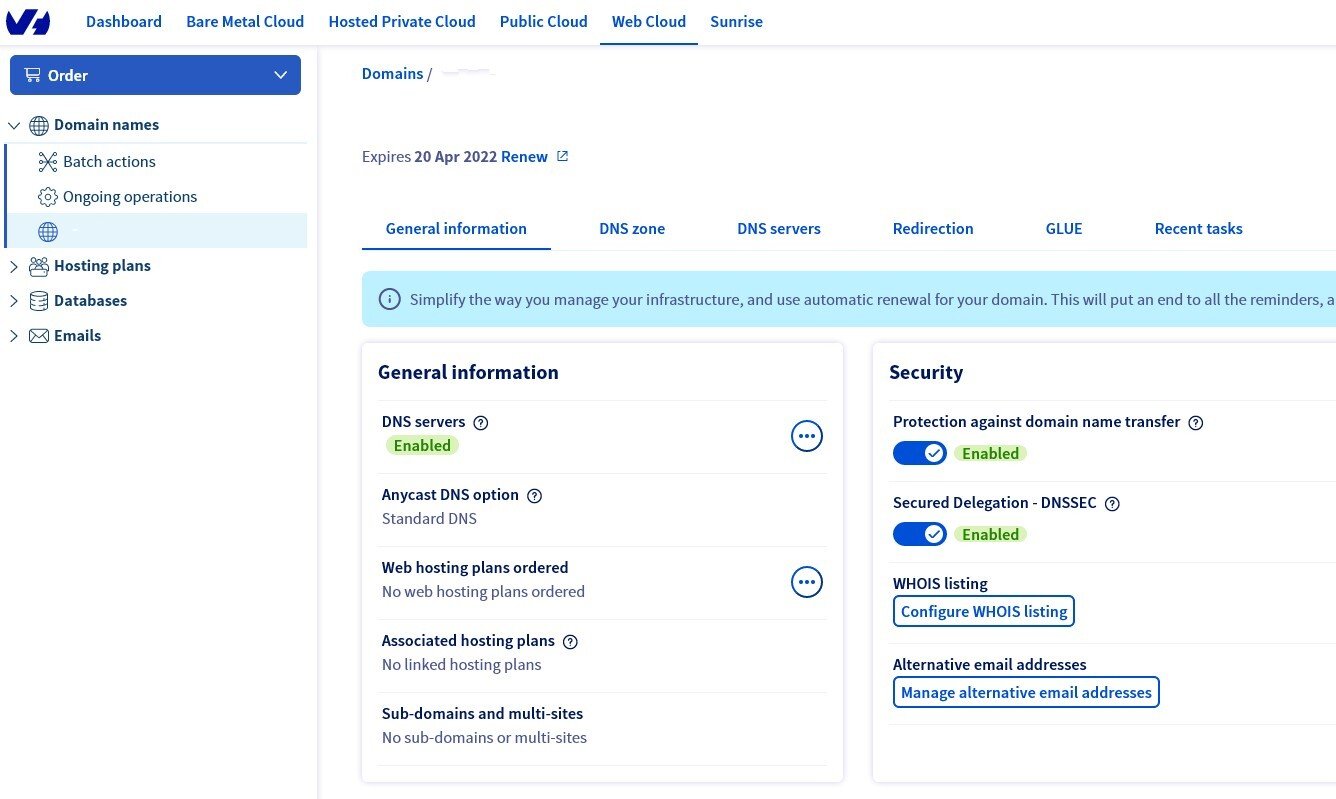
OVHcloud’s admin panel offers a centralized interface that is user-friendly and accessible, accommodating various levels of technical expertise. Although it does not feature a custom-built solution like DreamHost, it includes important functionalities like FTP Explorer, FTP Client, and SSH access. These tools enable users to efficiently manage their website files and configurations. While it might be less intuitive for complete beginners, it remains a practical choice for those who are comfortable with basic web technologies.
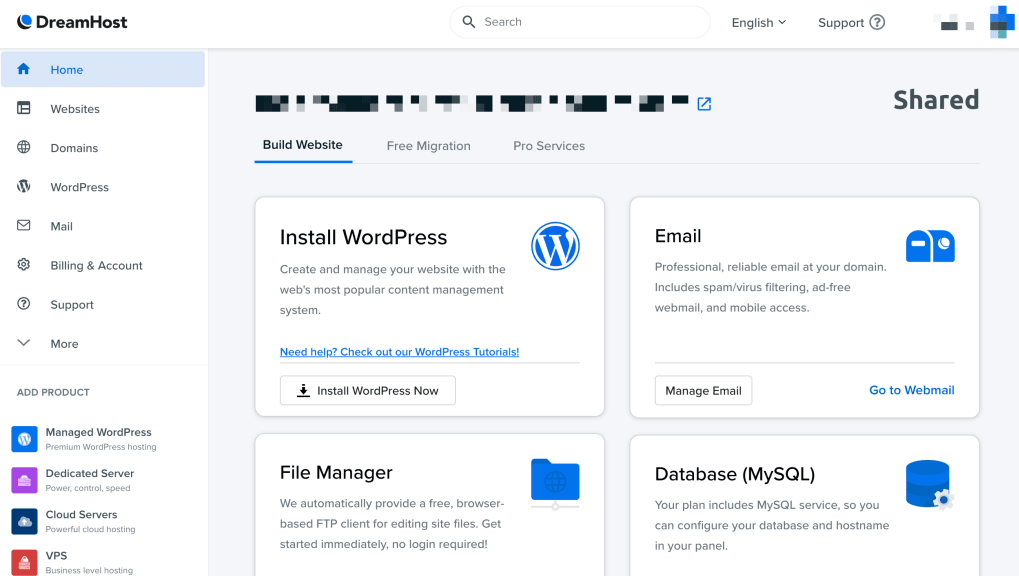
Both hosting providers offer migration tools, but DreamHost stands out for its streamlined Migration Dashboard, which scans your site and presents migration options in a guided manner. This service simplifies the transition process significantly. On the other hand, OVHcloud provides options for manual site migrations through FTP or SSH, which might be more time-consuming and complex for less technically-inclined users. Additionally, DreamHost’s migration services can often be more user-friendly, making them accessible for a wider audience.
The platforms provide extensive knowledge bases filled with guides, how-to articles, and instructional content. DreamHost offers a wide range of resources alongside 24/7 chat and phone support. OVHcloud also boasts a detailed help center with an intuitive search function and around-the-clock support via live chat, phone, and ticketing, ensuring comprehensive user support.
User management
accessibility.
Score Components:
- Role customization (40%): Flexibility in creating and defining user roles and
permissions. - Ease of management (30%): User interface and tools for managing users.
- Access control (20%): Effectiveness of access control measures for different user
levels. - Scalability (10%): Ability to manage a growing number of users efficiently.
 8.1
8.1
 8.9
8.9
🏆 Winner
OVHcloud: Comprehensive user and role management tailored for complex infrastructure needs.
DreamHost and OVHcloud both offer extensive user management features. DreamHost provides unlimited SFTP users with secure SSH access, which is beneficial for web developers and teams requiring remote server access. It uses a user-friendly control panel for managing domains, email, and other hosting-related operations. OVHcloud, on the other hand, focuses on precise role delegation and access management through the OpenStack API, allowing users to finely tune permissions and roles. DreamHost’s system is more straightforward, while OVHcloud offers greater flexibility in defining roles and permissions, making it a better fit for complex infrastructures.
DreamHost’s control panel is custom-built and designed to be intuitive, offering an all-in-one dashboard for managing various aspects like email, domains, and server configurations. OVHcloud also provides a control panel but places a significant emphasis on generating access files for tools like OpenStack CLI and Rclone. DreamHost’s panel is tailored for ease of use, whereas OVHcloud’s control panel facilitates advanced configuration and user-specific access file generation, providing a more technical management interface.
In terms of access control, DreamHost provides password protection, access to raw log files, and crontab access for automated tasks, which can help manage and troubleshoot user access effectively. OVHcloud excels with its ability to create unlimited users and roles, and the ease with which these can be disabled or updated. This flexibility makes it efficient in managing a growing number of users, especially for businesses with complex infrastructure requirements. Its structured role definition system helps maintain stringent security controls and efficient user management.
DreamHost user roles table:
| Role | Description | Access highlights |
|---|---|---|
| SFTP User | Provides secure file transfer access | Secure file upload/download via SFTP |
| SSH User | Allows command-line server access | Remote command-line operations |
| Crontab User | Automates recurring tasks | Scheduled execution of scripts and commands |
OVHcloud user roles table:
| Role | Description | Access highlights |
|---|---|---|
| Administrator | Full control over all resources | Complete infrastructure management |
| Network Operator | Manages networking aspects | Network configuration and management |
| Infrastructure Supervisor | Oversees overall infrastructure | Monitoring and supervisory tasks |
| ObjectStore Operator | Handles object storage operations | Management of storage objects and data |
| Image Operator | Creates and manages server images | Image creation, testing, and deployment |
| Compute Operator | Manages compute resources | Control over compute resources and virtual machines |
Customer support
hosting provider.
Score Components:
- Support communication channels (30%): Measures the variety of customer support types
provided (live chat, chatbot, email, phone, etc.) - Availability (20%): Assesses the availability hours for each channel, including 24/7
support options. - Technical support quality (30%): Assesses whether the provider offers comprehensive
technical support, including hardware upgrades (e.g., HDD to SSD), software installations, and web
server configuration changes. - Enterprise support (20%): Checks if there are dedicated or priority support services
for enterprise-level customers.
 8.3
8.3
 7.6
7.6
🏆 Winner DreamHost: Delivers round-the-clock support through multiple channels including live chat, email, and a comprehensive knowledge base at no extra cost.
 |
 |
|
|---|---|---|
Phone support |
||
Live chat support |
||
Chatbot |
||
Email/ticket support |
||
Enterprise support (dedicated agent, priority support) |
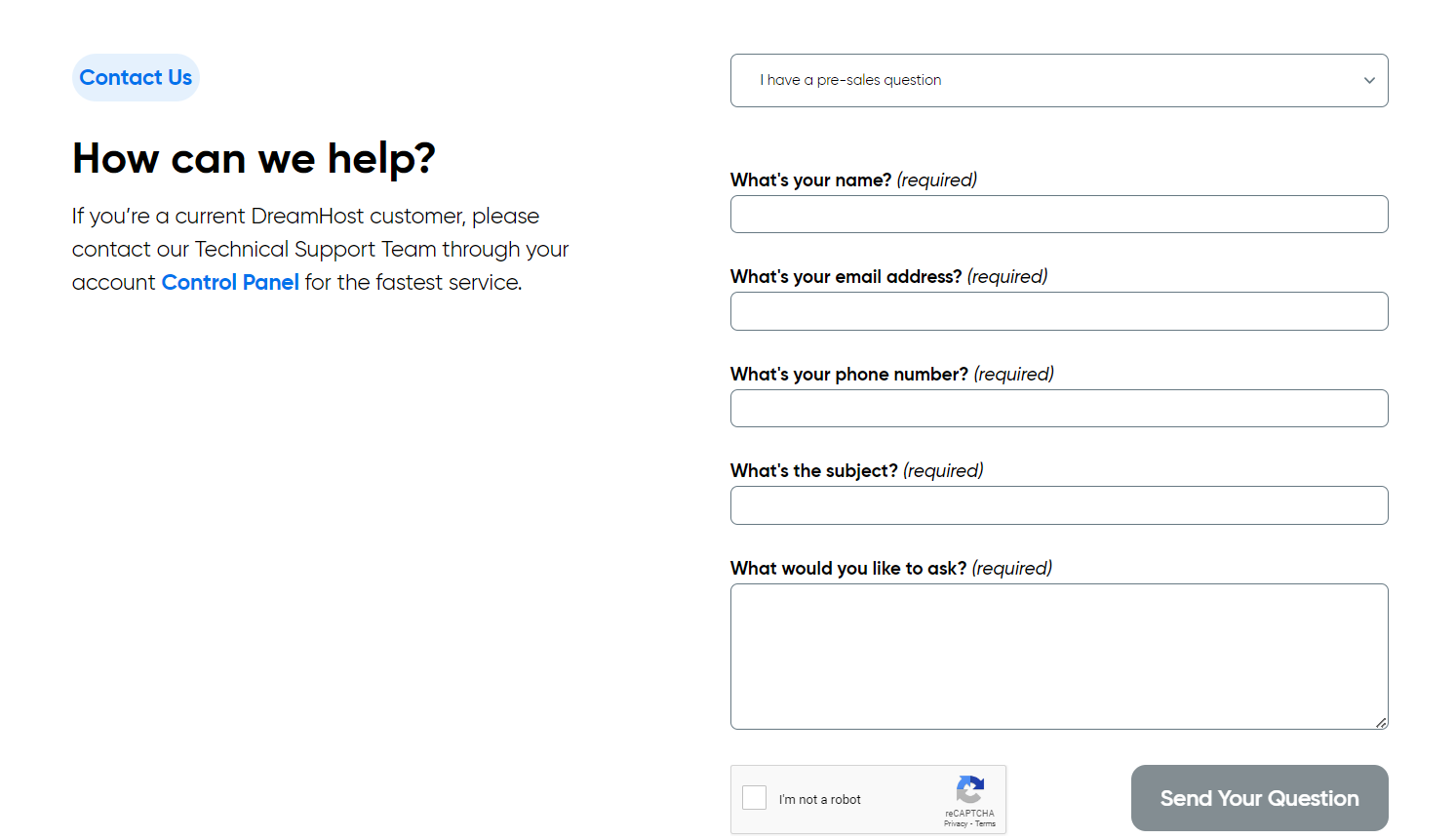
DreamHost provides customer support 24/7/365 through various channels, including a chat widget, email, and ticket system, all without additional fees for basic support. Response times are quick, with live chat addressed within minutes and tickets typically within hours. The lack of direct phone support is mitigated by the option to request callbacks for an extra fee. DreamHost also supports both English and Spanish and offers professional services like custom web design and marketing for extra charges.
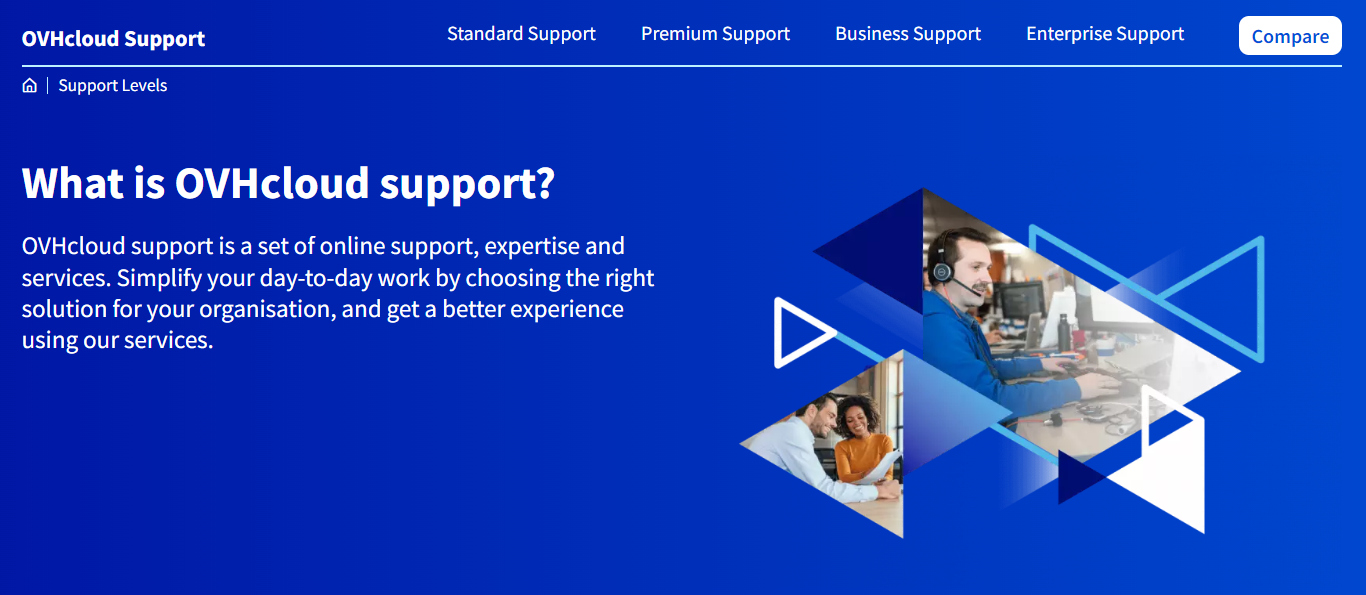
OVHcloud, on the other hand, has a multi-tier support system with standard support available only during business hours and higher levels requiring substantial fees. Enterprise support offers extensive services and 24/7 availability but comes at a premium. While OVHcloud provides telephone and email/ticket support, their community forum experiences delays, and live chat has yet to be implemented. Automatic renewal of plans is enabled by default, and refunds are limited to specific conditions, making DreamHost the more accessible and user-friendly option for most users.
Dreamhost vs OVH Cloud: User feedback
DreamHost is a well-regarded hosting provider praised for its reliability, affordable pricing, user-friendly interface, and excellent performance. Users especially appreciate the responsive customer support, the easy navigation of the web portal, and a variety of hosting options suitable for different needs. However, common criticisms include the lack of phone support, occasional slow response times from customer service, and some challenges related to advanced functionalities and site migrations. While the majority of users report positive experiences, a few have faced significant issues with downtime and customer service, impacting their overall satisfaction.
User feedback for this hosting provider reveals a stark contrast in experiences. On one hand, users appreciate the competitive pricing, diverse range of services, multiple datacenter locations, and solid server performance when issues do not arise, reflecting a favorable cost-benefit ratio. On the other hand, many users criticize the provider’s customer service, highlighting slow response times, inadequate technical support, and unresolved billing discrepancies, with some experiencing significant delays and lack of assistance in critical situations. Overall, while the hosting services can be robust and reliable, the customer support and service delivery times need considerable improvement.
Dreamhost vs OVH Cloud: FAQ
Which platform is better suited for hosting WordPress websites?
DreamHost is better suited for hosting WordPress websites with its optimized WordPress hosting plans like DreamPress, which feature pre-installed WordPress and automatic updates. OVHcloud also offers WordPress hosting but doesn’t provide the same level of specialized features. Therefore, for a tailored WordPress hosting experience, DreamHost is the preferred choice.
Are both platforms suitable for beginners?
Both DreamHost and OVHcloud are suitable for beginners, but DreamHost stands out with its custom-built control panel that simplifies web hosting tasks. DreamHost’s user-friendly dashboard, one-click WordPress installation, and extensive documentation make it easier for beginners to get started. OVHcloud is also user-friendly but may require a bit more technical knowledge to fully leverage its features.
Which hosting service offers more scalability options for growing websites?
DreamHost offers seamless scalability with features like expandable RAM and storage without immediate plan upgrades, making it ideal for growing websites. Their cloud, VPS, and dedicated hosting plans provide flexibility as needs grow. OVHcloud also provides scalability options, but these often come at an extra cost and may require manual upgrades, making DreamHost a more flexible and cost-effective option for scalability.
Which platform offers better customer support?
DreamHost offers superior customer support with 24/7/365 availability through various channels, including live chat, email, and a comprehensive knowledge base at no extra cost. OVHcloud offers telephone and email support but lacks live chat and has business hour limitations for standard support. Therefore, DreamHost provides more accessible and consistent customer support options.
How do the providers handle email hosting and what features are included?
DreamHost excels in email hosting, offering professional email addresses with anti-spam protection across all plans, and the option to integrate third-party services like Google Workspace. OVHcloud provides a robust native email hosting service with substantial email addresses available depending on the plan. While both platforms offer solid email hosting, DreamHost’s integration options and anti-spam measures provide a slight edge.
The making of this blog
We followed a clear, step-by-step process to write and research this article.









